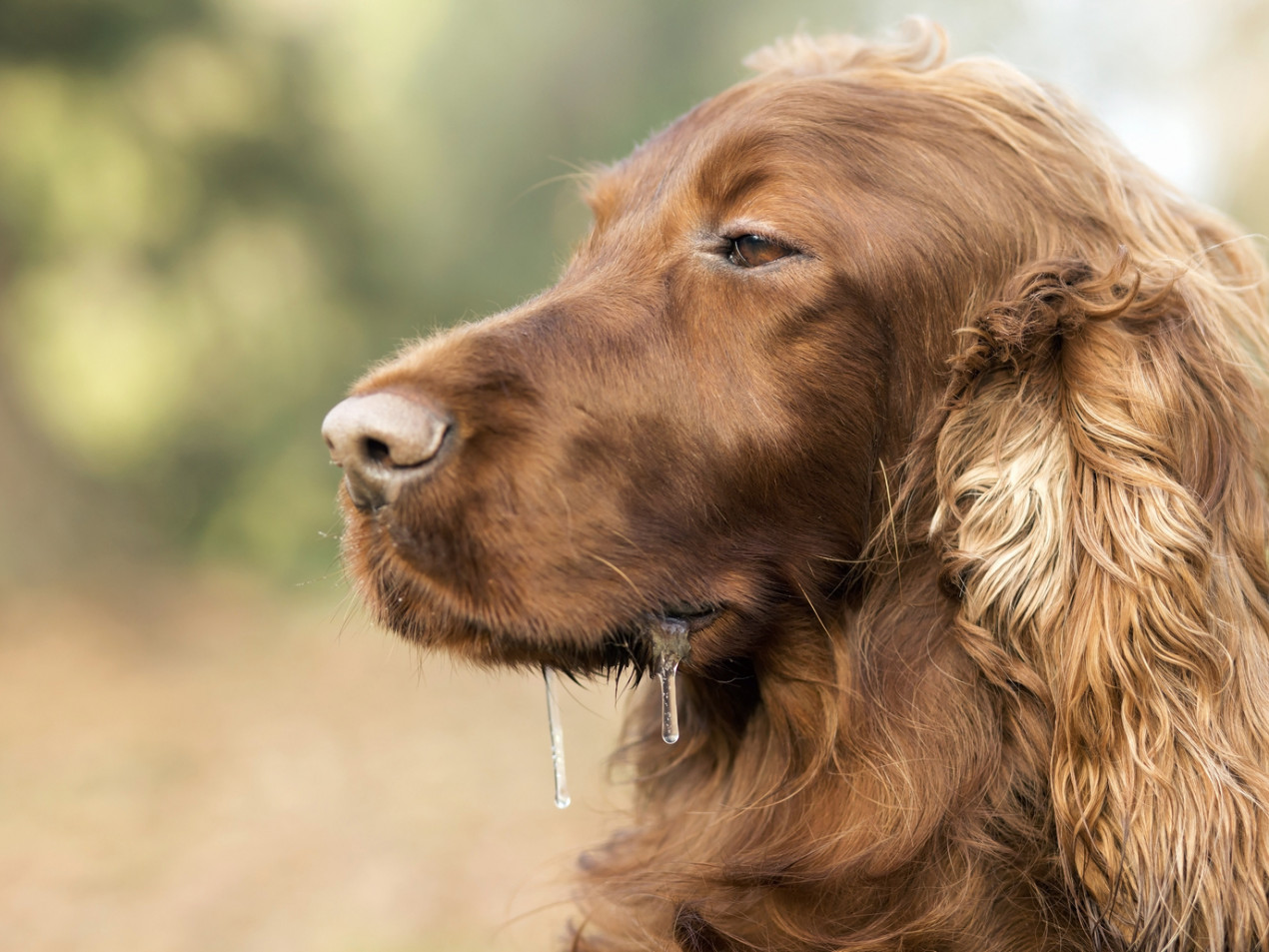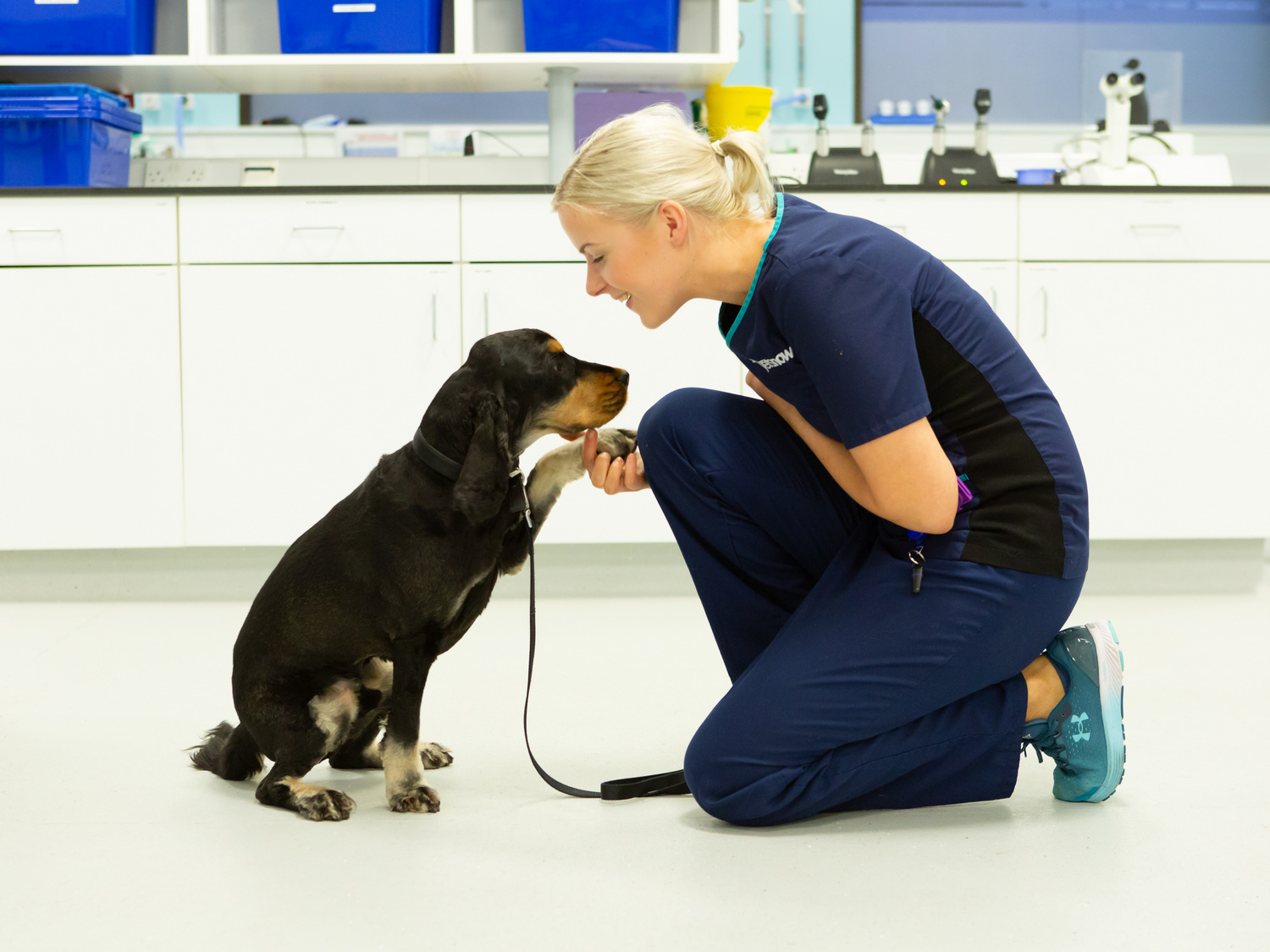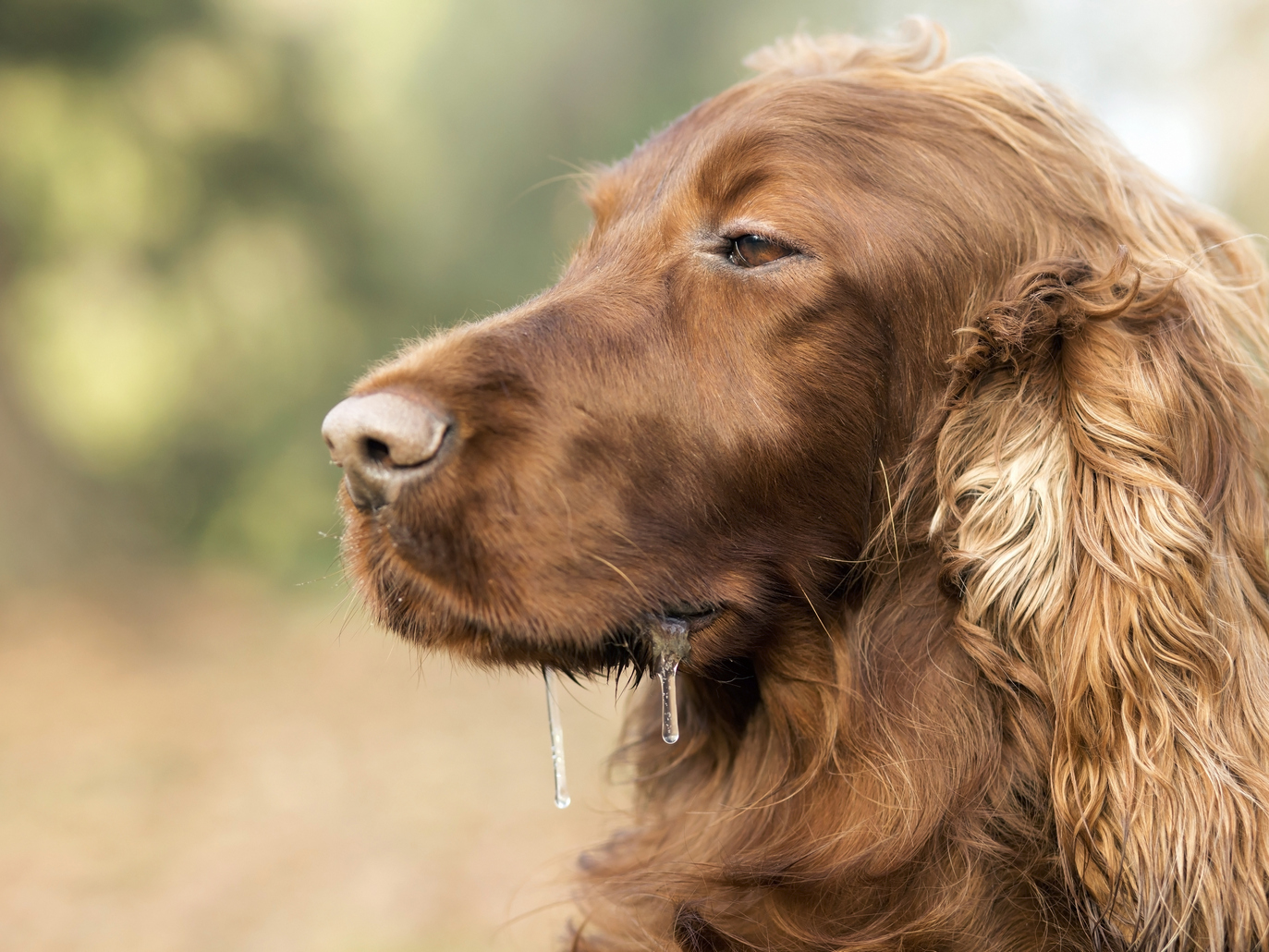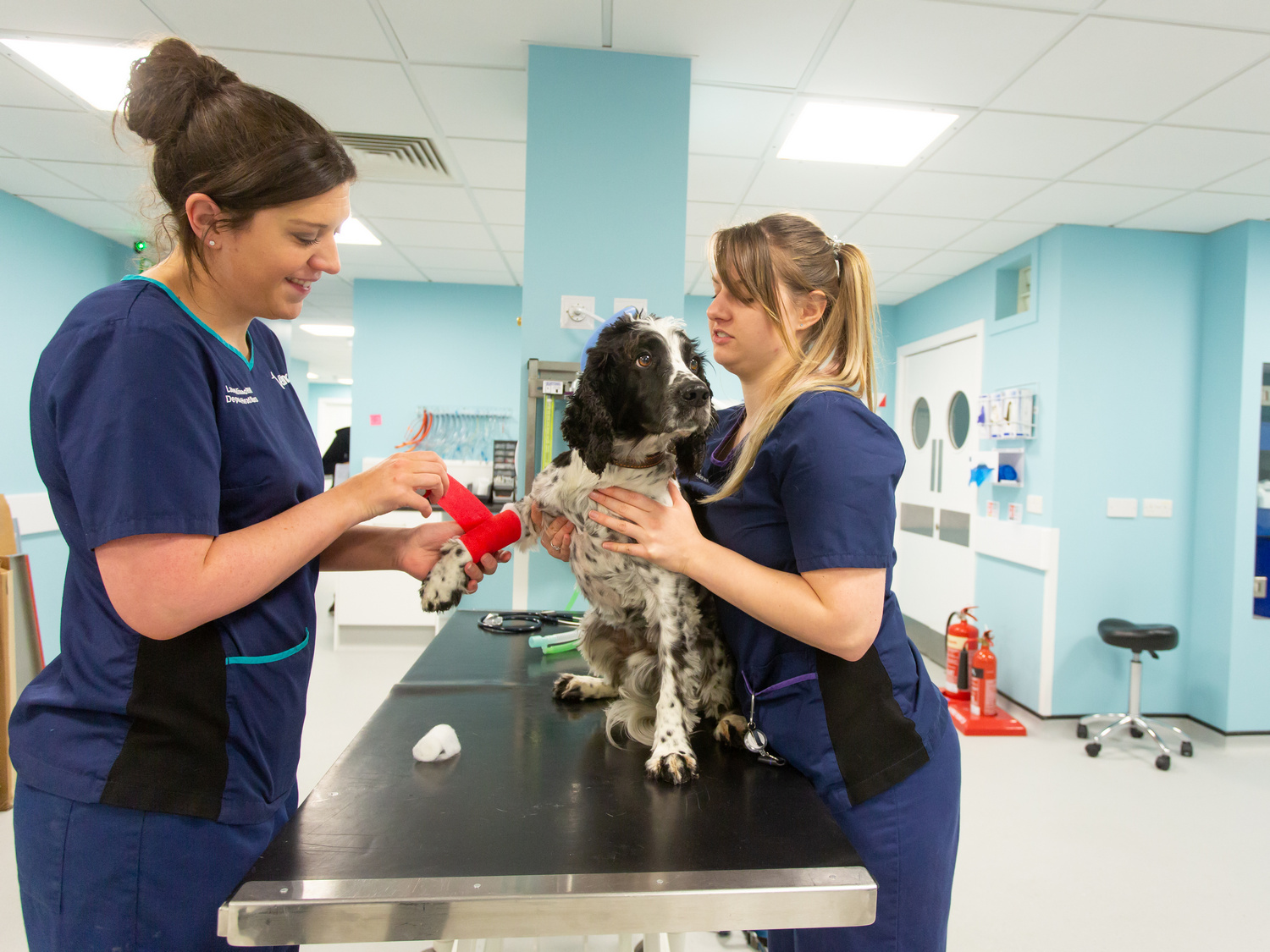Do you need help?

The facts about dogs drooling
In this article, we’ll examine why dogs drool, whether your dog’s drool is normal, how you can help them, and when it’s time to call a vet.
Saliva is important for dogs and humans as it helps us chew and digest food and it helps keep our mouths healthy. But there are times when drooling could be a sign of something more serious and your dog might need veterinary treatment.
If you think your dog’s condition might be life-threatening, please contact your vet right away. If your daytime vet is closed, you can find your nearest Vets Now emergency clinic here.
For advice in non-emergency situations, you can book an online video chat with PawSquad vets.
Is it normal for dogs to drool?
It’s normal for dogs to drool occasionally. Often it’s because they’ve seen food or found an interesting scent, while some dog breeds are just more prone to drooling than others. But when your dog is drooling excessively or unusually or has other symptoms, it could be a sign of something that needs veterinary attention.
There are many possible causes of drooling in dogs that require veterinary treatment, such as dental problems, poisoning, or heat stroke. If you’re unsure whether you should be concerned, getting advice from a vet is a good idea. It might be nothing to worry about, but it’s always best to be safe.
It’s worth keeping in mind that “excessive” drooling means different things to different dogs – what’s not excessive drooling for one dog might be normal for another. Only you will know what is excessive for your dog based on their normal behaviour.
Why is my dog drooling?
There are lots of things that could be causing your dog to drool. It could be down to excitement, fear, or nervousness or the result of taking certain medications.
Drooling could also be a sign of nausea – and if you notice them drooling when you’re in the car then it could be due to motion sickness. Dental problems, injury, infection, irritation of the mouth or lips or something stuck in their mouth, teeth or throat could also be to blame.
Drooling can also be a sign that your dog has ingested a toxin or poison or has heatstroke. While some drooling is normal to some extent and certain breeds of dog drool more than others (like St Bernards and bulldogs), drooling is sometimes a sign of an underlying cause that will need veterinary treatment.
Meanwhile, others – like poisoning, heat stroke or something stuck in their throat – should be treated as emergencies. That’s why you should always contact your vet for advice if you’re worried about your drooling dog.

Consider the causes of your dog's drooling
The more information you have for the vet, the better, so think about what details you can know:
- Is your dog drooling excessively or differently than usual?
- Are they showing other signs like lethargy, diarrhoea or pawing at their mouth?
- How long have they been drooling like this?
- Are they drooling from both sides or one side of their mouth?
- Have they eaten anything unusual or been near anything potentially toxic?
Remember, you should always contact a vet right away if you’re worried that your dog’s condition might be life-threatening, for example, if they have ingested any kind of toxic substance or poison or have something stuck in their throat.
Why is my dog drooling a lot and acting strange?
If your dog is drooling and showing other signs you should contact a vet right away as it could be a sign of an underlying issue.
Some issues that might accompany drooling include
- appearing lethargic
- aggression
- panting
- shaking
- pawing at their face
- not eating
- diarrhoea
- bleeding from their mouth
Be sure to tell the vet the manner they are acting strangely as this might help them identify the problem.

What should I do if my dog's drooling?
You know your dog best so if you’re in any way concerned you should contact a vet for advice on whether your dog needs to be seen. In emergency situations when your daytime vet is closed you should call your nearest emergency vet – find the number of your nearest Vets Now pet emergency clinic here.
If you don’t think it’s an emergency but you would like some expert advice you can book an online video chat with PawSquad vets here.
Causes of excessive dog drooling
Possible causes of dog drooling include:
- Emotional reaction (excitement, fear or nervousness)
- Side effect of some medications
- Nausea
- Motion sickness
- Dental problems
- Injury
- Infection
- Irritation of the mouth or lips
- Something stuck in their mouth, teeth or throat could also be to blame.
- Ingested a toxin or poison
- Heatstroke
- Breed disposition

Is dogs drool a sign of pain?
It’s possible that your drooling dog could be suffering from pain. For example, mouth or dental issues which could cause drooling can also be painful.
They could also have something stuck in their throat, making it painful to swallow and resulting in an overflow of saliva. Find out how to tell if your dog is in pain here.
Keep in mind that not all issues caused by drooling will be painful but still might need veterinary attention, so don’t wait for signs of pain to take action.
Is dog drooling a sign of stress?
You might be surprised to learn that stress can cause your dog to drool excessively. In stressful situations like moving house, travelling in a car, or watching fireworks, your dog might drool more than usual because it is anxious.
If you’re worried that your dog needs help with anxiety or stress, it’s worth having a chat with your vet about ways to help.
How do I help my dog stop drooling?
The way to help a drooling dog will depend on what’s causing it. If your dog is drooling and you’re not 100% certain of the cause, then always call a vet for advice. While it might not be anything to worry about it’s better to be safe than sorry.
If your dog is drooling due to stress, you can try to make it as comfortable as possible to alleviate their anxiety in certain situations. If fireworks cause excess drooling, find out how to prepare in advance.
If people make your dog stressed, look into ways to help socialise them and get used to being around strangers. If the anxiety is causing real health problems, then it’s worth discussing it with a vet.
If the increased drooling is due to motion sickness, consider limiting car trips with your dog or ask your vet about ways to help.
Dog breeds that drool
It’s normal for all dogs to drool a little but some breeds are known for drooling more than others. These include St Bernards (if you’ve ever seen the film Beethoven you’ll understand), bulldogs, bloodhounds and Bernese mountain dogs.
Owners of these kinds of breeds will need to accept the slobber, not to mention be prepared to regularly dry their mouths to keep them clean and prevent their skin from getting sore from the moisture.
Of course, there might be times when the excessive drooling in dogs of these breeds isn’t normal so it’s a good idea to keep track of your dog’s normal level of excessive drooling in dogs, so you can pick up on any problems if they arise.

